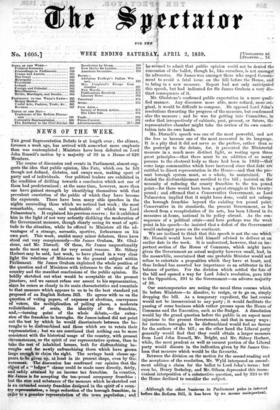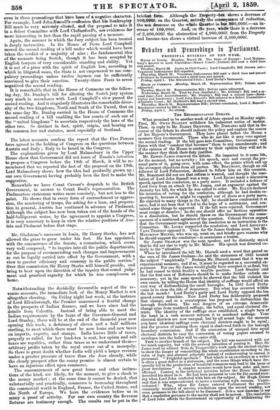Although the other businosa in Parliament pales in interest before
the Reform Bill, it has been by no means unimportant, even in those proseedings that have box of &negative character. For example, Lord John Russell's contbseion that his Bankruptcy Bill must be. very seriously altered, lea the proposal to take It in a Select Committee with Lora Chelmsford's, areevideaces for more interesting in fact than the rapid passing of a measure.
Again, the manner in which the Jury subject has been treated is deeply instructive. In the House of Peers Lord Campbell moved the second reading of a bill under which would have been taken the verdict of a majority of nine ; the fundamental idea of the measure being Scotch, though it has been accepted by English lawyers of very considerable standing and ability. Yet it is not of a piece with the spirit of English law, according to which in litigated eases, the State is not empowered to use com- pulsory proceedings unless twelve laymen can be sufficiently convinced to give their sanction. Twenty-three Peers to seven negatived the second reading.
It is remarkable that in the House of Commons on the follow- ing day, Mr. Dunlop's bill for altering the Scotch jury system very much in accordance with Lord Campbell's view passed the second reading. And it singularly illustrates the remarkable diver- sity of the two kingdoms, North and South of the Tweed, that on the same day Mr. Dunlop carried in the House of Commons the second reading of a bill enabling the law courts of each one of the "united kingdoms" to ascertain respectively the laws of the other two. So distinct in fact, spirit, origin, and bearing are the common law and statutes, most especially of Scotland.



























